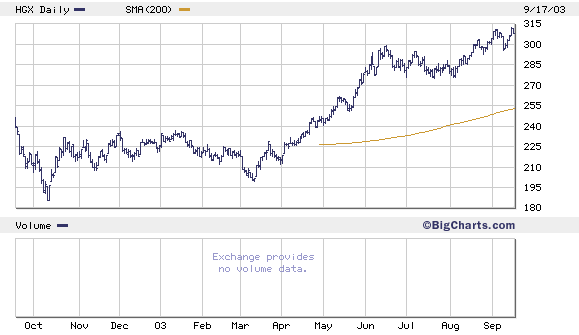Reader Mail From North...er...West (for me) of the Border, and The Housing Numbers
Reader mail below. By the way, Krugman's solution to the deficit problem is predictable: higher taxes. My prediction: one of the ten Democratic candidates is going to embrace "Krugenomics" and call for the Bush tax cuts to be repealed and for a retroactive tax increase on the nation's top 1% in the tax bracket. You don't hear Democrats criticizing bush for spending too much. They criticize him for taxing too little. That's what's caused the deficit. If we just raised taxes we could have everything we want and get the Bank of Japan to pay for it... Hi Dan, The daily articles are great. The commentary regarding taxes at 26% of GDP versus 38% of GDP for Canada ignores a major issue - Canada's tax revenue provides coverage (perhaps inferior) for all Canadians. I understand that Health Care is 14% of United States GDP. Health care coverage in the US is increasing well above the rate of inflation. The upcoming changes for drug coverage in the US congress does nothing to rein in the rising cost of drugs. Drug companies have convinced republicans to accept the new bill, as they were concerned about the recent court rulings in the State of Maine. The new bill will ensure list price is paid for drugs despite the fact there is only one bill payer. Congress and media owners were open to changing the laws to allow drug companies to spend billions on advertising, and now advertising is 14% of drug industry sales - I believe this is more than they spend on R&D. Americans typically accept that all industries should be super efficient or die, somehow this does not apply to health care. The number of drug suppliers is consolidating while their pricing power increases. Insurers, HMOs, individual bill payers remain part of a large fragmented market with minimal bargaining power. One should also consider the added burden of an out-of-control tort system that provides minimal value-added to the US economy. Canadian and European corporations avoid such costs. Fortunately, the US economy is much more productive than Canada's economy. Regarding China, even if China were to raise its labor rates by 50%, the US would still have to contend with much higher legal and medical costs. Adjusting the Yuan by 50% will not stop the flow of manufacturing jobs to China, as corporations are not simply chasing a country with low-cost wages, they are targeting a market that also has huge potential demand over the next decade. I believe in free and open markets; however, North American workers/consumers are in for a major drop in their standard of living. The train is coming and we should not be arguing about its speed, we need to get off the train tracks and figure out a way combat China from an economic perspective. Brendan Korneski My only other comment on Brendan's letter is that you can't really "combat China from an economic perspective" and win. If you "win," say by raising tariffs, prices rise dramatically for U.S. consumers. And if you "win" by getting the Chinese to revalue the Yuan, the dollar collapses. Either way, Brendan is right, standards of living are going to fall. It won't be the end of civilized society. But it may be the end of living above your means by refinancing your house....and incidentally... Today's housing numbers revealed that starts on single-family homes were down 4% and the average housing starts were down by 1.82 million. The upside is that building permits were up 4.8%. It's almost frightening how bubbly the housing numbers are being spun. According to the "spin," a decline in single family home sales is not cause for concern because mortgage rates remain historically low-- even though rates are rising and the odds of rates going historically lower are not good. And one of the hallmarks of a bubble is that supply continues to flood the market well in excess of the sustainable rate of demand. Now, it COULD be that even if housing PRICES fall, the net demand for housing will keep growing. In fact, I suppose you could say that if housing prices fell, or ceased growing as fast, it could conceivably make new homes more affordable (re the size of the monthly mortgage payment) than they currently are now. However, none of this takes into consideration that prospective new home buyers make a complicated calculation of risk when buying a new home. First, they assume they'll have a job which provides the income to make a mortgage payment. Even if unemployment numbers don't get much larger, and I think they actually will, if the marginal new home buyer decides not to buy a new home because he's uncertain about his job, this takes the steam out of new home sales...at the same time new supply is coming on stream. Falling demand, increased supply. Not a good scenario for prices. Even lower prices and historically low mortgage rates may not be enough to get a worker who fears for his job to take the risk of buying a new home. And this all based on the unexamined notion that mortgage rates will stay historically low. The Fed can choose to keep short-term interest rates low. And the 30-year mortgage rate can be kept somewhat lower because of the Fed. But the Fed has no control over long term rates. And when those start to rise as bond investors sell and the government must raise yields to find takers for its debt, the era of historically low mortgage rates ends. Maybe you want to buy homebuilders when they're making new highs. But the picture below shows me a trend whose premise is false...the only question is whether now is the time to ride the false trend, or bet against it. Strong Trend, False Premise, Place Your Bets


0 Comments:
Post a Comment
<< Home